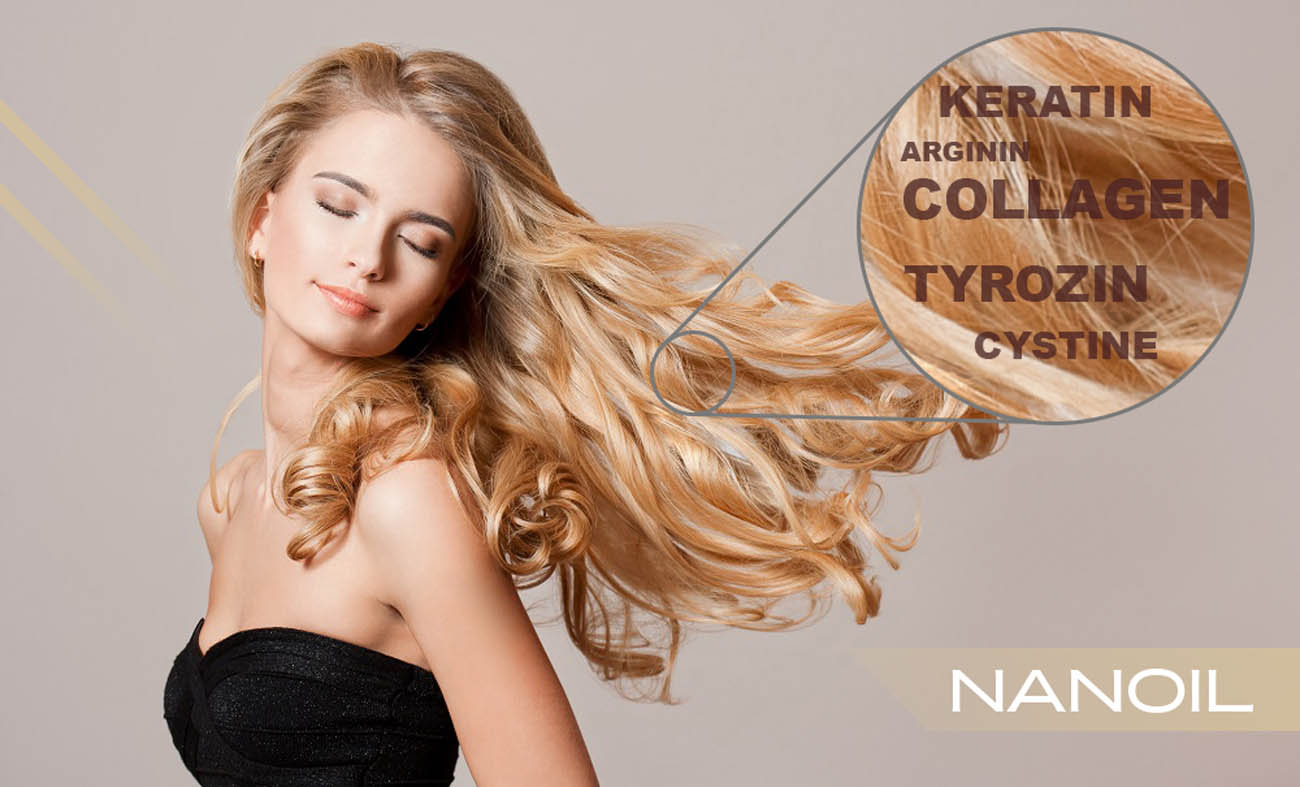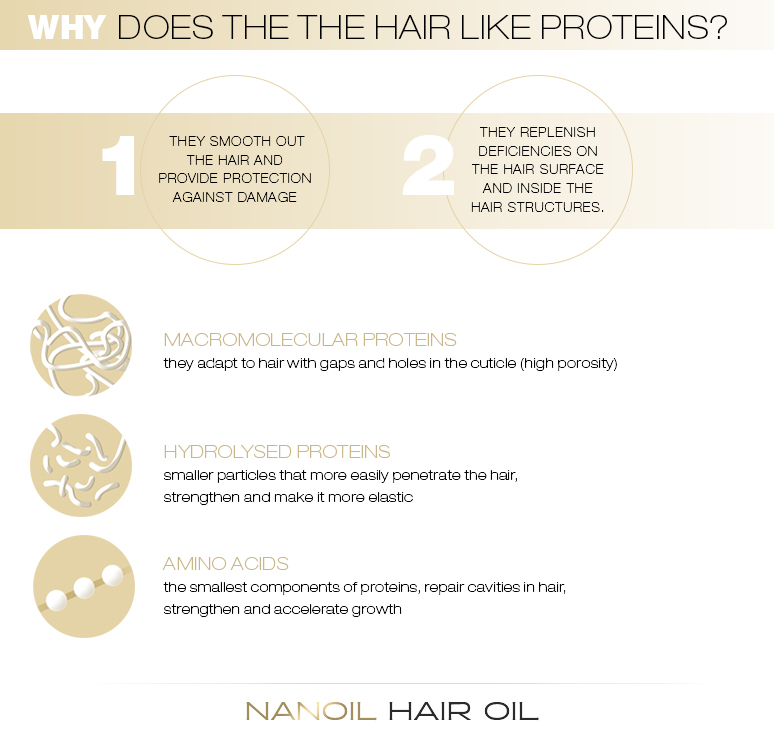- NANOIL Products
- Oils
- Face serums
- Hair masks
- Shampoos
- Hair conditioners
- Hair styling
- Care
- Hair Porosity Test
- Blog
- Contact

Proteins make up an extremely important group of ingredients. They are the building block of hair – a sequence of amino acids. Proteins reinforce the resilience of hair and keep hair from quick damage.Let me use a metaphor; proteins are like a renovation crew and its main task is fixing all flaws and destruction inside hair.

The protein team fulfils two functions. Depending on the size of particles, proteins can:
They work great for high porosity hair with large gaps in the cuticle layer. Thick low porosity hair can be weighed down with this type of protein (overproteined hair). Macromolecular proteins love to lie on hair, creating a protective occlusive layer on its surface for smoothness and increased shine. The group of macromolecular proteins includes:
Large proteins can be split by hydrolysis. Consequently, small particles come into being – they can penetrate hair structure and repair any damage (fix hair structure). Hydrolized proteins gift hair with elasticity, vitality, bounce and resistance to damage. Small particles of such proteins are suitable for all hair types – from low to high porosity. Hydrolized proteins:
The deficit of keratin - the building block of hair - is clearly visible. Hair is thin, unruly, lifeless and extremely hard to manage. It lacks energy and bounce. Protein is essential for damaged, color-treated and over-processed hair. It also must be delivered if you keep heat-styling your hairdo. The more damaging factors your hair faces up to, the more proteins it needs to keep hair structure untouched.
The right hair care needs balance in the delivered ingredients. The deficiency and excess of a given substance can be equally bad for your hairdo. Hair is overproteined when it got too much protein in relation to other ingredients provided. The balance of emollients, humectants and proteins is disturbed. Proteins make use of their ability to absorb water and start absorbing it from the inside of hair as well. As a result, hair is stiff, dry, rough and frizzy. Instead of gaining elasticity, it is brittle and fragile.
The good news is you can quickly rinse protein out of your hair. Just use a stronger shampoo, preferably a cleansing one to remove the protein overload. Next, do a hair oil treatment – the oil’s particles weaken the action of proteins. To avoid the protein overload, a regular hair oiling is a great solution.
While discussing proteins, we must mention the role of tiny amino acids in hair care. They are like small bricks building protein. The amino acid structures stimulate quicker hair growth and hinder thinning. There are SIX essential amino acids that must be delivered to enjoy strong, thick and beautiful hair:
Comments: #0